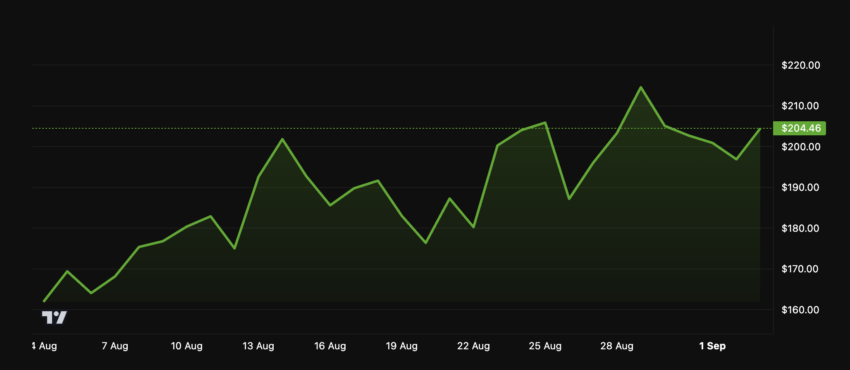Solana’s Alpenglow Upgrade Approved: Price Surges 6.5% Amid Network Optimism
Solana just flipped the switch on its Alpenglow upgrade—and the market responded instantly with a 6.5% price surge.
What’s Driving the Rally?
Network enhancements are fueling bullish sentiment. Validators approved the upgrade, triggering immediate momentum. No vague promises—just executable code and measurable impact.
Why It Matters Beyond the Pump
Faster finality, lower latency, stronger security. Alpenglow isn’t just another update—it’s a statement. Solana’s pushing scalability boundaries while others are still drafting roadmaps.
Traders pile in, skeptics watch, and Bitcoin maxis scoff—classic crypto theater. But let’s be real: when was the last time a bank software update moved markets 6.5% in a day?
98% of Validators Approve Alpenglow Upgrade
The governance process concluded on Tuesday with strong participation, surpassing the 33% quorum threshold required for adoption. According to solana Foundation data, 98.27% of votes favored the proposal, 1.05% opposed it, and 0.69% abstained.
The community governance process for SIMD-0326: Alpenglow is complete. The proposal has passed:
98.27% voted Yes
1.05% voted No
0.69% voted Abstain
52% of stake cast a vote
Validators voted on SIMD-0326, the Solana Improvement Proposal drafted by research firm Anza, which introduced Alpenglow. The protocol replaces TowerBFT and Proof-of-History with Votor and Rotor, two components built for efficiency and resilience.
Solana’s upgrade will reduce transaction finality from the current 12.8 seconds under TowerBFT to about 100–150 milliseconds. This upgrade marks a major performance shift, bringing Solana closer to Web2 speeds and enabling faster, safer exchange deposits.
“At these speeds, Solana could realize Web2-level responsiveness with L1 finality, unlocking new use cases that require both speed and cryptographic certainty,” the Solana Foundation wrote in an August 21 blog post.
Alpenglow introduces, a direct-vote system that finalizes blocks through single or dual-round processes, slashing finality times to near-instant levels.replaces Proof-of-History, handling validator timestamping and cutting the time required for data transfers.
In short, the upgrade eliminates bandwidth-heavy gossip traffic, enabling validators to exchange votes directly through cryptographic aggregates. This design reduces computational overhead, improves bandwidth efficiency, and strengthens security guarantees.
Anza Lead Economist Max Resnick noted that users will notice the difference immediately:
“The biggest difference users will feel right away will be a reduction in confirmation latency to approximately 150–200 milliseconds.”
Additionally, Alpenglow changes Solana’s economic model by moving validator voting off-chain. Instead of submitting vote transactions for every slot, validators pay a Validator Admission Ticket of 1.6 SOL each epoch.
This change removes voting-related fees, reduces bandwidth usage, and preserves economic barriers that secure the validator set.
Solana $215 Breakout Ahead?
Following the news, Solana’s price climbed 6.5% over 24 hours to $209. This increase outpaced Bitcoin’s 2.1% rebound and Ethereum’s 0.6% recovery during the same period.

Analysts suggest the upgrade could boost Solana’s appeal to developers and institutions. Shawn Young of MEXC Research projected that SOL could reach $215 by late September and $250 by year’s end, citing technical improvements and institutional treasury holdings surpassing $1.7 billion.
Alpenglow will debut on testnet by the Solana Breakpoint conference in December 2025, and a full mainnet rollout is planned for the first quarter of 2026.

